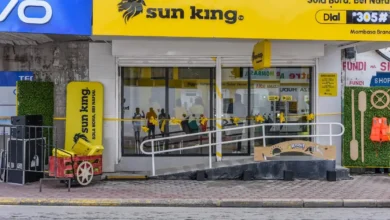
A new report shows that Kenya does not have suitable policies to support the growth and development of micro, small and medium enterprises.
According to the MSME policy index report launched by Kenya Private Sector Alliance, Kenya is particularly lacking in supportive frameworks for business development, MSME representation and access to MSME funding.
According to the Kenya National Bureau Of Statistics, there were approximately 1.6 million licensed micro, small and medium-sized enterprises in Kenya, providing up to 85% of employment as of 2017.
However, MSMEs only contribute about 20% of Kenya’s gross domestic product, a pointer to their low contribution to the economy.
It is against this backdrop that the apex body for the private sector in Kenya – the Kenya Private Sector Alliance embarked on a study to investigate the biggest setbacks facing Kenya’s MSMEs as well as the policy interventions required for them to thrive and contribute optimally to economic growth.
The study shows that in its current form, Kenya’s MSME policy environment is currently largely not supportive of MSME development and needs to be reviewed and strengthened towards world benchmarks such as the levels recorded by south East Asian economies.
One of the key findings of the study done by KEPSA points to the fact that MSME’S in the country lack a one-stop-shop for accessing critical market intelligence.
According to the Principal Secretary For Trade, Dr. Chris Kiptoo, this is a bottleneck that needs urgent intervention if Kenya is to close the gap between its exports and imports.
The MSME policy index report, which is the first in Kenya and Africa, focused on 8 policy dimensions that include enabling governance and business regulations, reliable infrastructure, skills development, access to financing, effectiveness of MSME representation, supportiveness of frameworks, market linkages, as well as innovation, ICT adoption and technology transfer.
The study targeted registered and licensed MSMEs with 2018 single business permits in Kiambu, Machakos and Nairobi counties.
1,152 MSME owners out of the 118,726 formally registered and licensed MSMEs across the three counties were sampled at county and business category level.





